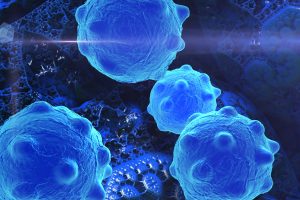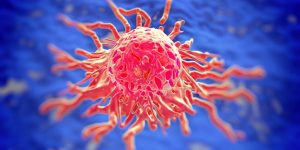Scientists from the Cleveland Clinic will soon begin testing the first cancer vaccine, which should not cure, but actually prevent the disease.
cancer vaccines
Vaccines are commonly referred to as drugs given to healthy people to prevent disease. In oncology, vaccines are primarily immunotherapy agents used to suppress the growth of an already diagnosed tumor. Previously, promising results in studies have been demonstrated, for example, in vaccines against brain cancer (diffuse glioma) and against melanoma.
One of the difficulties in the path of a true preventive cancer vaccine is that the proteins of tumors are usually similar to the proteins of normal tissues. If you teach the immune system to attack them, there is a risk of developing severe autoimmune reactions: antibodies can damage body tissues.
How is the new vaccine different from cancer?
Scientists at the Cleveland Clinic have been working on a “true preventive” breast cancer vaccine for years. The fundamental research that paved the way for this goal was published in Nature Medicine back in 2010. Its authors have chosen the target for the drug (more precisely, for the antibodies that are produced by its action) protein alpha-lactalbumin. It is found in high concentrations in most breast carcinomas. Normally, it is determined in the epithelium of the gland during lactation (breastfeeding). Experiments in mice have shown that this vaccination can prevent several types of breast cancer in mice. Then the scientists noted that in the future this method can be tested for the prevention of cancer in women who have experienced menopause: when lactation is unlikely, and the risk of cancer is high.
What exactly do scientists want to do now?
This time, scientists from the Cleveland Clinic have come close to testing a vaccine against breast cancer in humans.
“The long-term goal of this study is to find out if this vaccine can prevent breast cancer before it develops. In particular, this applies to its aggressive forms, which prevail among high-risk women, ”said Vincent Tuohy from the Research Institute. Lerner at the Cleveland Clinic, one of the creators of the current version of the vaccine.
To start, the researchers are going to see how effective the vaccine is in preventing the recurrence of triple-negative breast cancer.
What is triple negative breast cancer
This is the name of breast cancer, in which the tumor cells lack the main targets for which drugs are designed to treat it. Their growth is not stimulated by the hormones estrogen and progesterone, as well as the HER2 protein. This type of cancer, which accounts for 10-20% of all breast cancers, is particularly dangerous.
In the first phase of the vaccine study, the authors will test the drug’s safety and obtain early data on its immunogenicity in humans. The study is currently recruiting participants (required 18-24 people) who have been treated for triple-negative breast cancer but who are at risk of recurrence. They must be in good health and not take drugs that can provoke lactation https://en.wikipedia.org/wiki/Lactation.